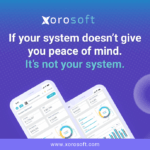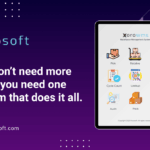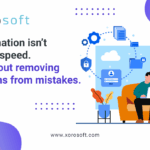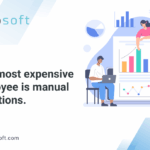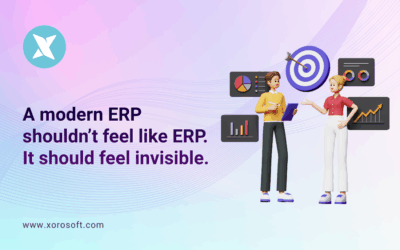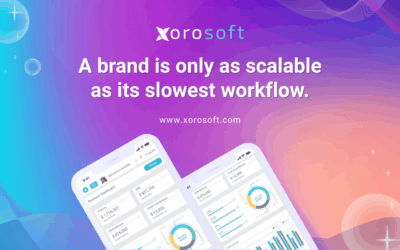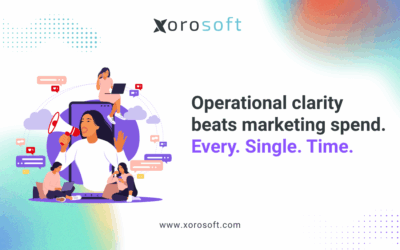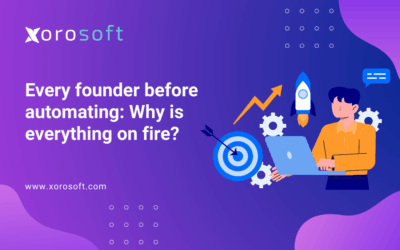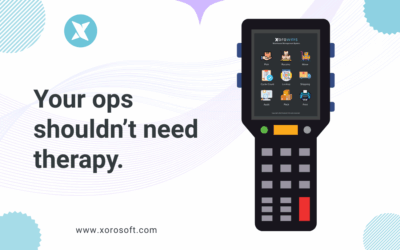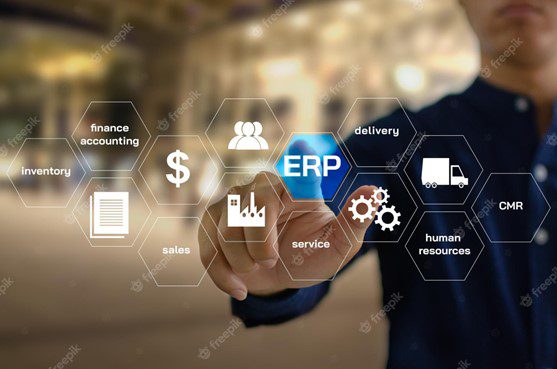
Introduction to ERP Systems
As a business owner or decision-maker, you’re well aware of the critical role technology plays in streamlining operations, improving efficiency, and driving growth. One such technology that has become increasingly essential is the Enterprise Resource Planning (ERP) system. ERP systems are comprehensive software solutions that integrate and manage various business functions, from accounting and inventory management to human resources and supply chain operations.
In today’s fast-paced and competitive business landscape, having the right ERP system in place can make all the difference in your organization’s success. However, the process of choosing and implementing an ERP system can be daunting, with a myriad of options and considerations to navigate. In this comprehensive guide, we’ll explore the key challenges you may face and provide you with the insights and strategies to navigate them successfully.
Understanding the Challenges of Choosing an ERP System
Selecting the right ERP system for your business is a critical decision that can have far-reaching implications. One of the primary challenges you may face is the sheer number of ERP solutions available on the market, each with its own unique features, capabilities, and pricing structures. Evaluating and comparing these options can be a time-consuming and overwhelming task, especially for businesses that are new to the ERP landscape.
Another challenge lies in aligning the ERP system with your organization’s specific needs and goals. Every business is unique, with its own set of processes, workflows, and pain points. Finding an ERP solution that seamlessly integrates with your existing systems and can adapt to your evolving requirements is crucial for ensuring a successful implementation.
Additionally, the cost of implementing and maintaining an ERP system can be a significant concern for many businesses, particularly smaller organizations with limited budgets. Ensuring that the ERP solution you choose provides a strong return on investment (ROI) is essential for maximizing the value of your technology investment.
Key Considerations when Selecting an ERP Solution
When it comes to choosing an ERP system, there are several key factors to consider:
- Functionality and Features: Carefully evaluate the core functionalities and features of the ERP system, ensuring that it aligns with your business’s specific needs. This may include modules for accounting, inventory management, supply chain, human resources, and more.
- Scalability and Flexibility: As your business grows and evolves, your ERP system should be able to scale and adapt to your changing requirements. Look for a solution that offers the flexibility to add or modify features as needed.
- Integration Capabilities: Assess the ERP system’s ability to seamlessly integrate with your existing software, such as customer relationship management (CRM) tools, e-commerce platforms, and other critical business applications.
- User Experience and Ease of Use: The ERP system should be intuitive and user-friendly, with a clean and modern interface that promotes user adoption and productivity.
- Implementation and Training: Understand the implementation process, including the time and resources required, as well as the availability of comprehensive training and support to ensure a smooth transition.
- Cloud-based or On-premise: Decide whether a cloud-based or on-premise ERP solution best fits your business’s needs, considering factors like cost, security, and IT infrastructure requirements.
- Vendor Reputation and Support: Evaluate the ERP vendor’s reputation, financial stability, and the quality of their customer support and ongoing maintenance services.
The Importance of Aligning Your Business Needs with an ERP System
One of the most crucial steps in choosing an ERP system is ensuring that it aligns with your organization’s unique business needs and goals. This involves a thorough assessment of your current processes, pain points, and future growth plans. By understanding the specific challenges your business faces, you can identify the ERP features and functionalities that will have the greatest impact on your operations.
For example, if your business struggles with inventory management and stock control, you’ll want to prioritize an ERP system with robust inventory tracking, forecasting, and reporting capabilities. Alternatively, if your organization places a strong emphasis on financial management and accounting, you’ll need an ERP solution that seamlessly integrates with your existing accounting software and provides comprehensive financial reporting tools.
By aligning the ERP system with your business needs, you can maximize the return on your technology investment and ensure that the solution you choose truly empowers your organization to achieve its objectives.
Exploring the Features and Capabilities of Xorosoft ERP
One ERP solution that has consistently proven its value in helping businesses like yours navigate the challenges of managing complex operations is Xorosoft ERP. Xorosoft is a comprehensive, cloud-based ERP system that offers a wide range of features and functionalities designed to streamline and optimize your business processes.
At the core of Xorosoft ERP is a powerful accounting module that integrates seamlessly with your financial management workflows, providing real-time visibility into your organization’s financial health. This module includes features such as accounts receivable, accounts payable, general ledger, and advanced reporting capabilities, ensuring that your accounting processes are efficient and accurate.
In addition to its robust financial management capabilities, Xorosoft ERP also excels in inventory control and supply chain management. With advanced inventory tracking, forecasting, and automated replenishment, you can maintain optimal stock levels, reduce waste, and improve your overall supply chain efficiency.
The system’s human resources module further enhances your operational efficiency by streamlining employee management, from onboarding and payroll to performance tracking and training. Xorosoft ERP’s comprehensive integration capabilities also allow you to seamlessly connect with your existing business applications, ensuring a seamless flow of information across your organization.
How an ERP System Can Streamline Inventory Management
Effective inventory management is a critical component of any successful business, and Xorosoft ERP’s robust inventory management module can help you achieve new levels of efficiency and control.
One of the key features of Xorosoft ERP’s inventory management module is its ability to provide real-time visibility into your stock levels, enabling you to make informed decisions about purchasing, production, and distribution. With advanced inventory tracking and forecasting capabilities, you can accurately predict demand, minimize stock-outs, and optimize your inventory levels to reduce carrying costs.
The system’s automated replenishment functionality further streamlines the inventory management process, ensuring that your stock is replenished at the right time and in the right quantities. This not only improves your overall supply chain efficiency but also frees up your team to focus on more strategic initiatives.
Moreover, Xorosoft ERP’s inventory management module integrates seamlessly with the system’s other core functionalities, such as accounting and procurement. This integration allows for a seamless flow of information, reducing the risk of errors and ensuring that your inventory data is always accurate and up-to-date.
The Benefits of Integrating Accounting with an ERP System
Integrating your accounting processes with an ERP system like Xorosoft can provide a wealth of benefits for your business. By consolidating your financial management and operational data into a single, centralized platform, you can gain unprecedented visibility into your organization’s financial health and performance.
One of the primary advantages of this integration is the ability to generate comprehensive, real-time financial reports. Xorosoft ERP’s advanced reporting capabilities allow you to track key performance indicators, monitor cash flow, and analyze profitability across different business units or product lines. This information can be instrumental in making informed, data-driven decisions that drive your organization’s growth and success.
Moreover, the integration of accounting with an ERP system can significantly streamline your financial processes, reducing the risk of errors and improving overall efficiency. Tasks such as accounts payable, accounts receivable, and general ledger management can be automated, freeing up your accounting team to focus on more strategic initiatives.
By leveraging the power of Xorosoft ERP’s accounting integration, you can also enhance your organization’s financial controls and compliance. The system’s robust security features and audit trails ensure that your financial data is secure and that your business remains compliant with relevant industry regulations and standards.
Implementing Xorosoft ERP: Best Practices and Common Challenges
Implementing an ERP system like Xorosoft can be a complex and multi-faceted process, but by following best practices and addressing common challenges, you can ensure a successful deployment and maximize the benefits of your investment.
One of the key best practices is to establish a dedicated project team that includes representatives from various departments within your organization. This cross-functional team can help ensure that the ERP implementation aligns with the needs of all stakeholders, from accounting and inventory management to human resources and customer service.
Another important best practice is to develop a comprehensive implementation plan that outlines the project timeline, resource requirements, and key milestones. This plan should also include a thorough change management strategy to help your team adapt to the new system and processes.
Common challenges during the implementation process may include data migration, user adoption, and integration with existing systems. To address these challenges, it’s crucial to allocate sufficient time and resources for data cleansing and migration, provide comprehensive training for your team, and work closely with the Xorosoft implementation team to ensure a seamless integration with your current business applications.
The Role of Training and Support in Successful ERP Implementation
Successful ERP implementation is not just about the technology itself, but also the people who will be using it. Providing comprehensive training and ongoing support is essential for ensuring that your team can effectively leverage the full capabilities of Xorosoft ERP.
At Xorosoft, we understand the importance of user adoption and offer a range of training resources to help your team get up to speed quickly. This includes in-person training sessions, online tutorials, and comprehensive user manuals that cover all aspects of the system’s functionality.
Moreover, our dedicated customer support team is available to assist you throughout the implementation process and beyond. Whether you have questions about a specific feature, need help troubleshooting an issue, or require guidance on best practices, our team of ERP experts is here to provide the support you need to ensure a successful deployment.
By investing in comprehensive training and ongoing support, you can empower your team to fully harness the power of Xorosoft ERP, driving increased productivity, improved decision-making, and ultimately, a stronger return on your technology investment.
The Advantages of Choosing Xorosoft as Your ERP Solution Provider
As you navigate the process of selecting an ERP system for your business, it’s important to consider the advantages that Xorosoft can offer as your solution provider. Here are a few key reasons why Xorosoft stands out:
- Comprehensive Functionality: Xorosoft ERP is a robust, all-in-one solution that encompasses a wide range of critical business functions, from accounting and inventory management to human resources and supply chain optimization.
- Cloud-based Flexibility: As a cloud-based ERP system, Xorosoft offers the flexibility and scalability to adapt to your evolving business needs, without the burden of on-premise hardware and IT infrastructure.
- Seamless Integration: Xorosoft ERP seamlessly integrates with your existing business applications, ensuring a smooth flow of information and data across your organization.
- Exceptional Customer Support: Our dedicated customer support team is committed to providing personalized assistance and guidance throughout the implementation process and beyond, ensuring your long-term success.
- Proven Track Record: With a strong reputation for delivering innovative ERP solutions and a proven track record of successful implementations, Xorosoft is a trusted partner for businesses of all sizes.
By choosing Xorosoft as your ERP solution provider, you can be confident that you’re investing in a technology that will empower your organization to achieve new levels of efficiency, productivity, and growth.
Conclusion: Making an Informed Decision for Your Business
Selecting the right ERP system for your business is a critical decision that can have far-reaching implications for your organization’s success. By understanding the key challenges, evaluating the features and capabilities of Xorosoft ERP, and following best practices for implementation, you can navigate this process with confidence and ensure a successful deployment.
At Xorosoft, we are committed to partnering with businesses like yours to provide the technology, expertise, and support you need to thrive in today’s competitive landscape. If you’re ready to take the next step in transforming your business operations, we invite you to Book a Demo with Xorosoft and experience the power of our comprehensive ERP solution firsthand.
